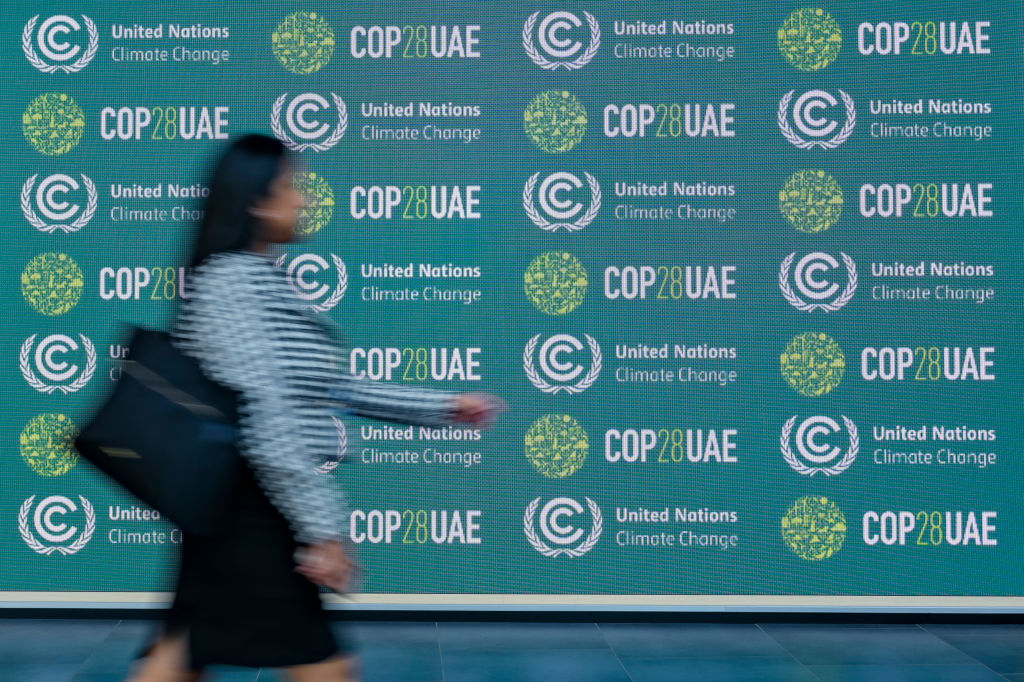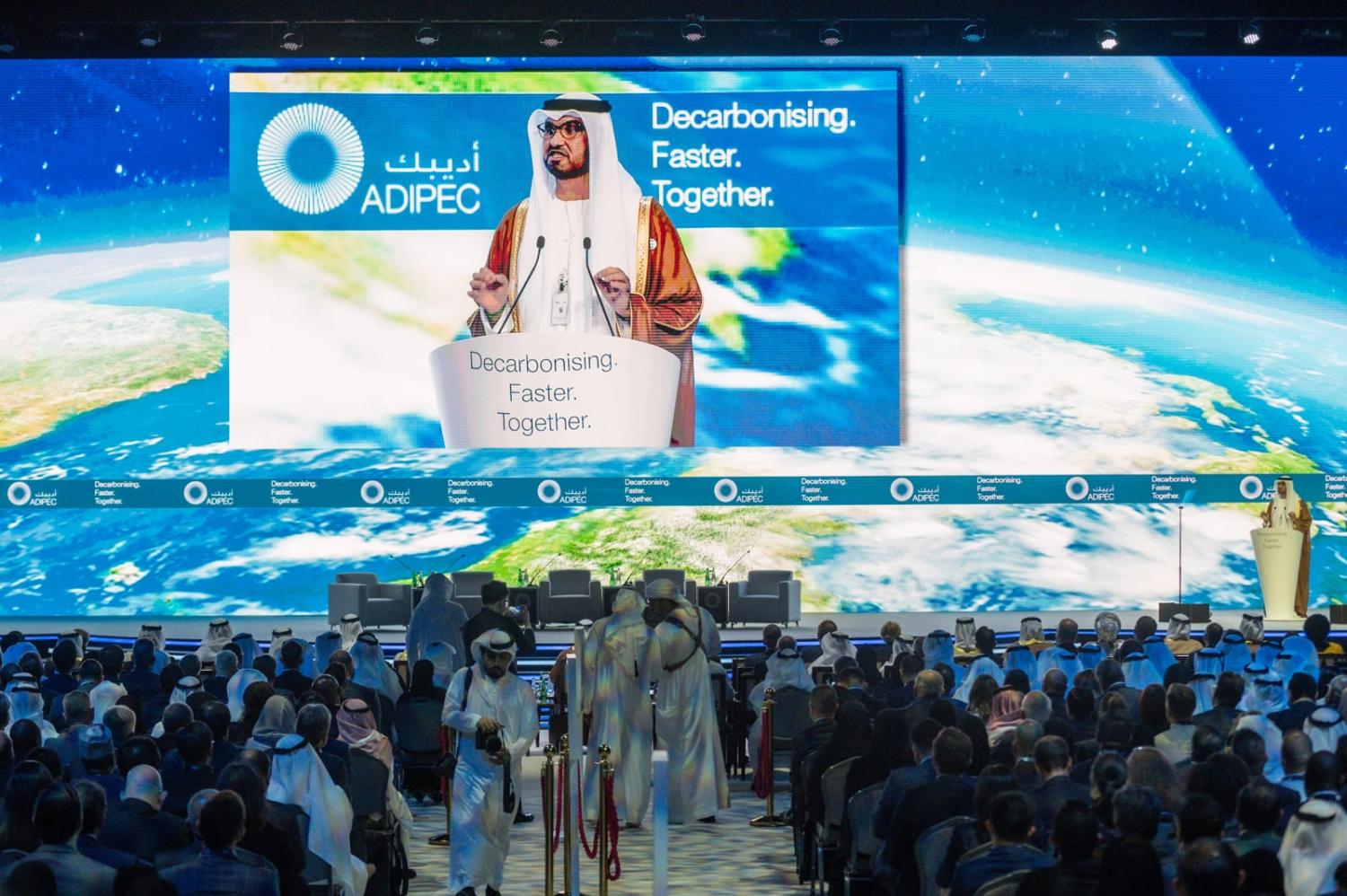The time until the next climate change negotiations get underway in December seems deceptively far away, but in fact countries are already gearing up for the 28th Conference of the Parties (COP28), which will take place in Dubai. Many anticipate that no significant progress will be made due to the obvious vested interest of the oil nation and the questionable intentions of Sultan Al Jaber, host of talks as COP28 president and also chief executive of the state-owned oil giant Adnoc.
A leaked strategic document revealed the plans of the presidency to avoid reference to fossil fuels and play down human rights violations such as women’s rights or freedom of speech in a time where deep emissions cuts – not just reductions – are urgently needed and policy related to inclusion becomes ever more important.
Much is at stake. Developing countries, especially island states, don’t have the luxury to let COP28 be a failure in which countries negotiate through careful wording, loopholes and exceptions on how much they are still able to emit rather than getting on with phasing out the use of fossil fuels.
Three topics are likely to take centre stage in the upcoming negotiations.
First, the so-called Global Stocktake. It measures progress of all commitments made by countries towards emissions reductions and adaptation to climate change since they signed up to the Paris Agreement. The results have been sobering.
The goal to stay under 1.5 degrees Celsius of overall warming of the planet to avoid the effects of catastrophic climate change is almost out of reach. As it currently stands, the world is on course to exceed this target with a whopping increase up to 2.6 degrees Celsius by 2100 – this itself only being achievable if every country implements the emissions cuts they have promised.
If 2100 seems long into the future, think again. It is less than the average life expectancy of a human, and the consequences will be felt before 2050 and are in fact already here.
This is true for developed and developing countries alike. More frequent and more severe tropical cyclones in the Pacific have been coupled with rising sea levels. Ravaging wildfires in Greece, Türkiye and Italy have occurred due to extended droughts. Devastating floods have taken place in Germany, Belgium and the Netherlands. While in Australia, the Great Barrier Reef has suffered four mass bleaching events since 2016 due to unusually high ocean temperatures. Climate change doesn’t discriminate.
These examples and more make adaptation and building resilience the key priorities for those communities most vulnerable to the consequences of climate change, including those whose contribution to the problem has been negligible.

The second issue to watch for at COP28 is the Global Goal on Adaptation, a common way of tracking, measuring and monitoring adaptation actions that all countries have committed to. This is not an easy task as adaptation to climate change is not quantifiable in a meaningful way. Action is localised and context-dependent so success lies in the eyes of the beholder. Negotiators have discussed possible and comparable targets and indicators to measure success and allow for consistent reporting for the next Global Stocktake in 2027. It’s clear that there is a “rapidly closing window of opportunity to secure a liveable and sustainable future for all”.
This leads to the third and probably most controversial discussion point, the Loss and Damage (L&D) Fund, which was established at last year’s COP27 in Egypt. This was a breakthrough for developing countries after what can be described as a more than 30-year delay, given the proposal was first made in 1991 before the United Nations Framework Convention on Climate Change was established.
The request for an L&D Fund had, until now, always been shut down due to fears of liability and compensation payments from developed to developing countries. While legal and official compensation payments based on historical emissions are still off the table, developed countries finally caved in and agreed to an L&D Fund that is meant to specifically address the unavoidable consequences caused by climate change due to insufficient mitigation.
The design of the fund is supposed to be agreed at the talks this year but recent developments do not look promising. Despite relentless work during 2023, the last negotiation meeting with appointed country representatives of the Transitional Committee collapsed. Fundamental questions could not be resolved, such as the administration of the fund, eligibility of countries, and mobilisation of finance.
Sticking points remain over how the fund will deal with displacement due to climate change effects and non-economic losses such as culture, homes, lives and sovereignty – all things difficult to put a dollar value on. It could be that demands for justice and the call for compensation are back on the table, particularly with the shocking results of the Global Stocktake.
Despite Sultan Al Jaber’s pledge for serious and urgent action on climate change, his position as the chief executive of the largest oil company in the United Arab Emirates as well as COP28 president hardly seems conducive to the negotiations. Developing countries will have to put up their best fight yet to ensure measures needed for their survival are not compromised.

